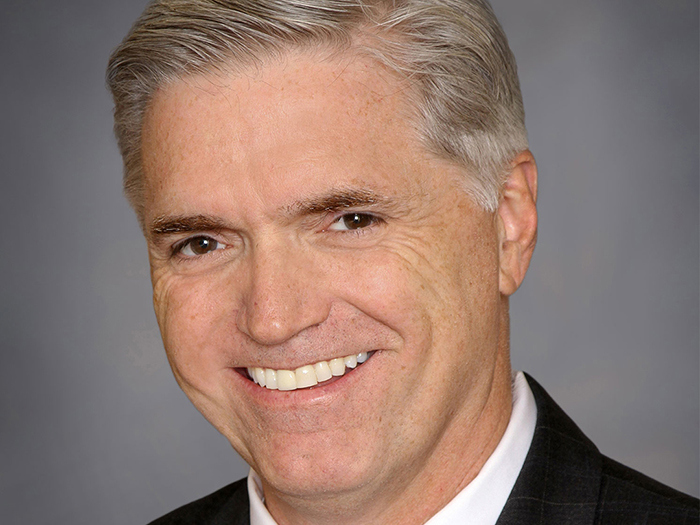Unseen Scars: The Impact of Mental Health on Injured Workers’ Recovery

For almost five years now, I’ve written about the workers’ compensation industry, and many, many of those articles have focused on how an injured employee’s mental health can suffer after an injury.
I covered these topics diligently, but I didn’t know how true these articles were until I had to undergo a surgical procedure on my foot this year due to a non-work-related injury. It was so swollen, I had to wear my fiancé’s shoes (men’s size 13; it was a low point). For weeks, I was limited in how much I could walk. As an avid runner, I was saddened by the hours I spent resting. The pain medication I took made it hard to focus, so I struggled to read and write.
 In short, I felt pretty useless.
In short, I felt pretty useless.
Thankfully, my procedure was minor, and I recovered quickly. Injured workers are going through a lot more. Not only do they need to worry about functionality and recovery, they might face concerns about their incomes. On top of that, they must navigate the complex and often confusing workers’ compensation system. A study of 3,160 workers with musculoskeletal disorders found that 27.5% experienced moderate to severe psychological distress.
“They’re at the worst point of their lives. They’re hurting. Their financial situation is now in jeopardy. They’re limited in what they can do with their family and friends — and it takes a toll on a person,” said Michael Bunte, CWC, project manager ACCS business partner solutions and associate casualty claims consulting at Aon.
“Let’s be honest, the comp system is not exactly easy to navigate. If you have no knowledge of the comp system, it’s a nightmare.”
For many years, the workers’ comp industry resisted addressing an injured worker’s behavioral health as part of the claims process. That’s slowly changing. Tackling these issues head on can prevent them from spiraling, improving claims outcomes and lowering costs in the process.
How Early Integration of Behavioral Health Services Affects Claims
Resistance to treating behavioral health concerns in workers’ compensation stems from a fear of increasing costs. Many on the claims side fear “buying the psych-claim” — if you acknowledge that an injured worker might be struggling, will you have to pay for treatment for depression and anxiety, too?
That’s not what Bunte and the others I spoke with are advocating for.
When workers’ comp professionals choose to engage with behavioral health factors as part of a biopsychosocial model, it means talking with the injured worker, listening to what they’re going through and, this part is critical, sharing that information with their treatment team in case it can impact recovery. By being proactive, providers and adjusters can work together to reduce the risk of delayed recovery and increase claims savings.
“People don’t need a mental health diagnosis in order to benefit from behavioral intervention,” said Dr. Miranda Kofeldt, vice president of clinical services for Ascellus.
“There are psychosocial factors that are either slowing their recovery or leading to concern that they may not be able to return to work or reach full functional capacity … their mood and then anxiety is to some degree impacted by their functional changes as well as factors such as catastrophizing regarding the meaning of pain.”
One quick example: If a worker is dissatisfied at their job or had an argument with their boss, they might exaggerate their pain as a means of avoiding returning to work. A quarter of workers report job dissatisfaction to some degree at the time of injury, a 2022 WCRI survey found. A mental health professional could help detect these issues.
“Nothing gets the doctor, the treating clinician more upset than when six months into the claim and the claim has gone way south, the claims examiner or the nurse case manager says, ‘oh, by the way, doctor, did you know that this person had a very negative interaction with their boss?’ ” said Dr. Steven Wiesner, medical advisor for Karuna Labs.
“We can bring that claim to closure efficiently from the musculoskeletal perspective, but the patient’s quality of life really improves by identifying that this is not the right environment for them.”
Others might want to avoid returning to work, because they fear reinjury. “The patient can be reassured that nothing bad’s going to happen because of the pain,” said Dr. Rajiv Das, medical director, employee health services, UCSF Benioff Children’s Hospital Oakland.
Collaboration, Collaboration, Collaboration
There are clear benefits to addressing behavioral health issues early on in the claim. To do so, workers’ compensation programs need to build the right team. It’s a bit like S.H.I.E.L.D. Director Nick Fury assembling The Avengers — you need to right adjusters, nurse case managers and medical providers to each tackle different parts of the process. Their different strengths and their collaboration is what allows them to be successful in tackling behavioral health problems.
“It really is about communication and collaboration,” Wiesner said. “Don’t be afraid to work and collaborate and communicate with your healthcare providers on identifying early those risk factors that may delay a normal recovery pattern.”
Assembling the right medical providers is a big piece of that puzzle. Workers’ comp programs need to find doctors who understand the uniqueness of the system and who prioritize working with adjusters and nurse case managers to produce the best recovery outcomes for injured workers.
“They really need to sit down and figure out, what groups are available or what specialists, what physicians are available in the community that are willing to work with us and meet the goals that we have to keep our employees safe and healthy?” Wisener said.
Adjusters should be proactive about discussing behavioral health concerns with doctors and reading over their notes to check for any factors that may indicate poor behavioral health that could be affecting recovery.
“I think it would behoove the adjuster to talk with the doctor and ask, ‘are there any behavioral health concerns initially in the claim?’ ” Bunte said. “The adjuster needs to look through the medical notes and read what the doctor’s writing because there’s a lot of valuable information in those medical reports.”
That can be challenging. Providers are extremely busy — especially since physician shortages are plaguing the industry. “The challenge — and my heart goes out to the claims examiners, goes out to the nurse case managers — it’s not always easy to get in touch with a primary treating physician or a clinician,” Wiesner said.
“I was a clinician for many years and we’re busy and especially in the world that we’re living in now within the health care arena, doctors and healthcare providers are really being pushed very hard.”
Educating the Industry
Though many are starting to see the benefits of psychosocial interventions, the workers’ compensation industry as a whole is still struggling to overcome concerns about paying for psychological care.
“There’s a lot of recognition about psychosocial issues and their impact on recovery and right now there’s a big movement towards finding effective ways to address those,” Kofeldt said. “However, there is still concern that bringing behavioral healthcare providers to the table may result in unnecessarily extending care rather than improved outcomes.”
Education is still needed in order for the system to understand that addressing issues that can derail claims won’t necessarily result in additional psychological spend. Doctors can play a role in helping with that education.
“Providers need to identify some of the non physical issues involved in managing a patient,” Das said. “One needs to be aware of how to avoid the stigma of behavioral health issues in the workers’ comp compensation arena and properly communicate it to the adjuster.”
If adjusters and other workers’ comp pro’s know what kinds of symptoms and factors they should be looking for, they can better address them before they become more costly.
“If psychosocial factors are not addressed early on, there’s an increased likelihood that they escalate throughout the course of care,” Kofeldt said.
One major red flag to look for: “If the mechanism of injury is not significant and the individual continues to experience many barriers that prevent re-engaging in life, that is a red flag,” Das said.
Addressing any family factors that could put additional stress on an injured worker is beneficial as well. “If there’s a recent divorce, there’s a recent birth in the family, there’s somebody that the patient’s taking care of like an elderly parent, those become very important in addressing the patient and the world that they’re living in,” Wiesner said.
Once the industry understands the positive results addressing behavioral health concerns can bring, more workers’ comp stakeholders are likely to embrace the approach.
“When there’s an injury and there is some mental health component — whether it’s depression, anxiety or whatever it could be — those issues treated early on are not a bad thing. At the end of the day, you’ll have a happier injured worker,” Bunte said.
“You’ll probably get the injured worker back to work much quicker, which will save on future Indemnity, and more likely have a positive result in the workers’ comp injury.” &
Hear more from Bunte, alongside a panel of presenters, at National Comp 2024. For more information on session “Improve Outcomes, Avoid the Claim ‘Rabbit Hole’ With Early Integration of Behavioral Health Services,” and other topics, visit here today.








